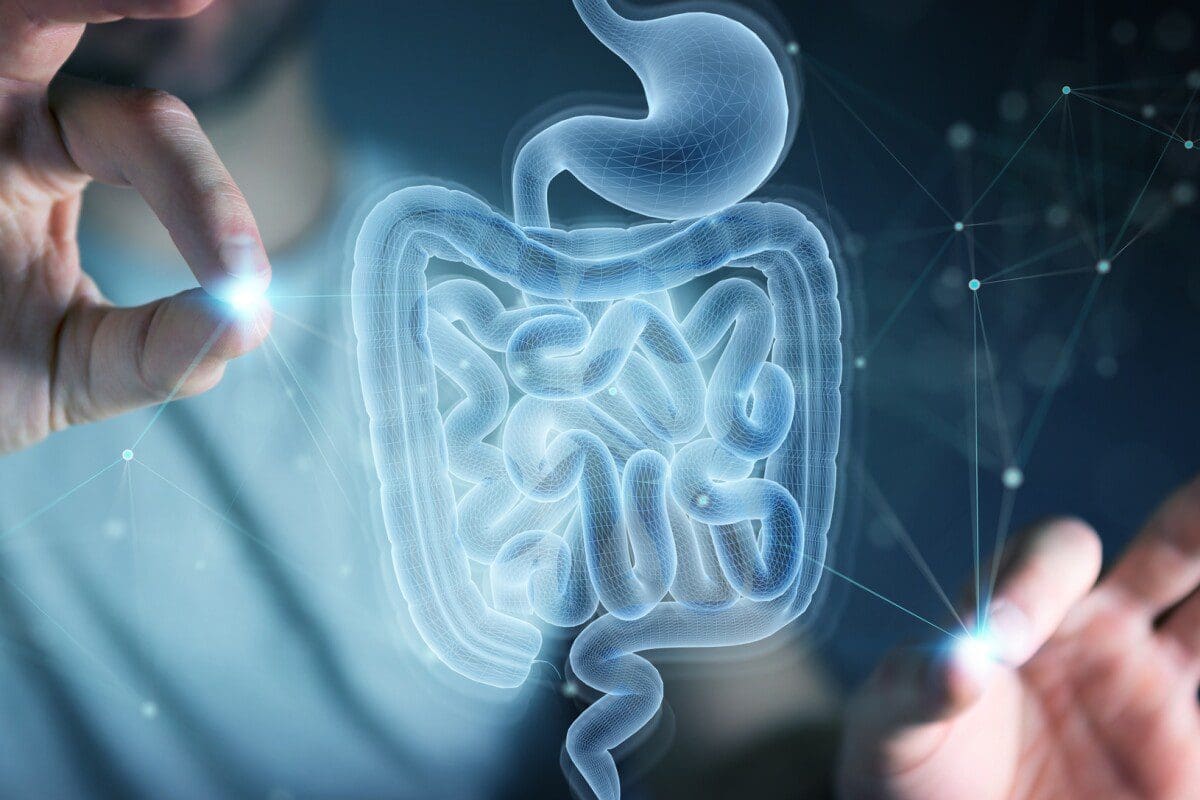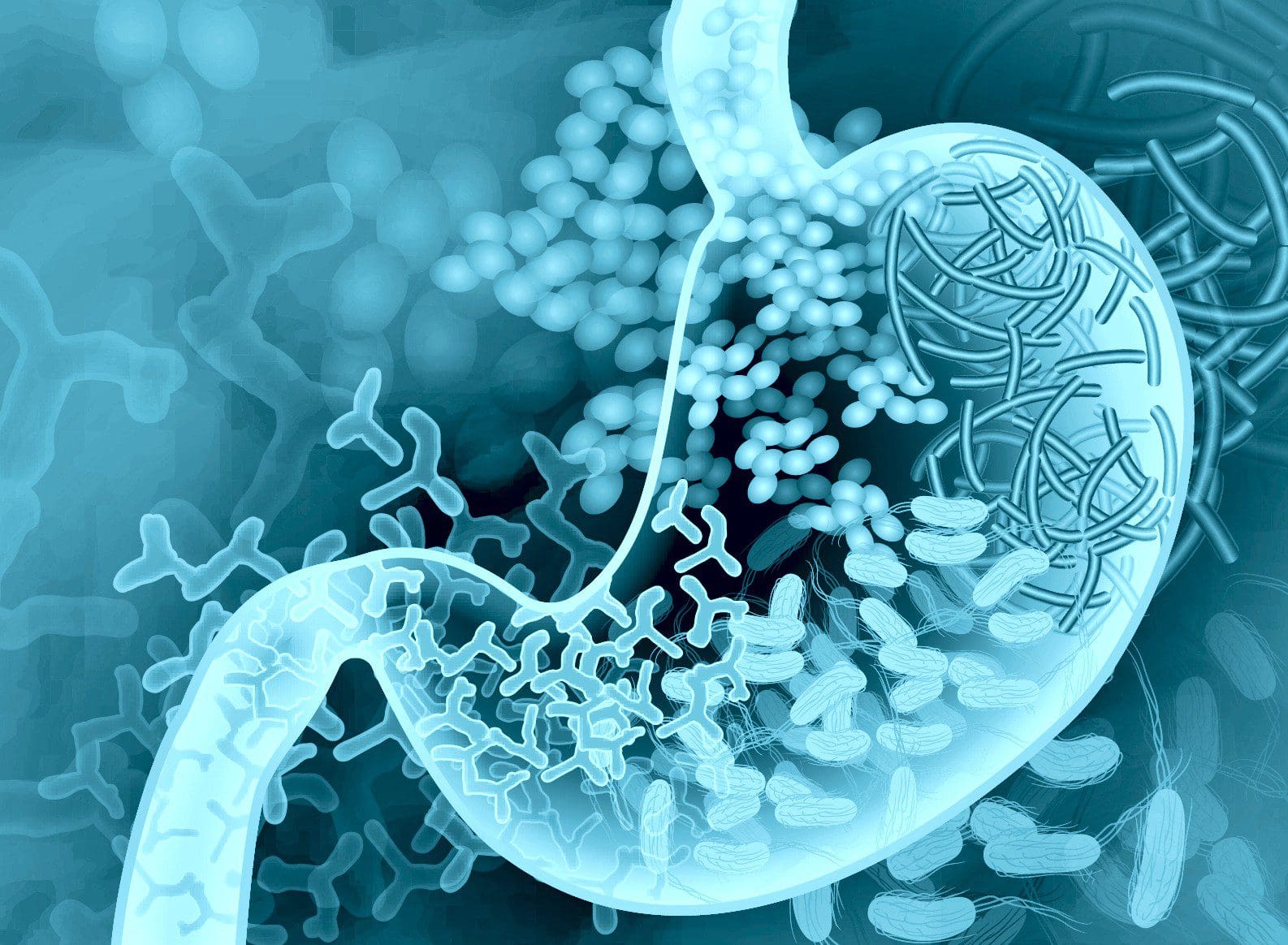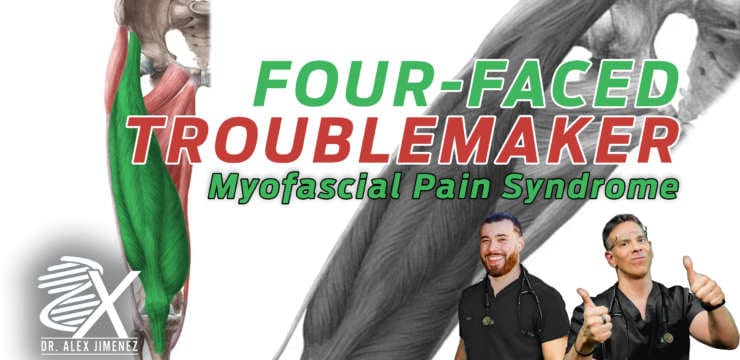
Table of Contents
Introduction
When it comes to the gut system, its main priority is to ensure that the body is supplied with nutrients and digests the consumed food that a person is eating. The beneficial nutrients help the body stay in motion, while the gut system constantly communicates with the immune and the central nervous system. The gut microbiota also harbors beneficial bacteria that helps keeps the gut staying functional and turns the consumed food into nutrients and vitamins to be distributed to the rest of the body. When disruptive factors start to affect the gut microbiota, it can cause unwanted symptoms, causing the body to become dysfunctional. Today’s article post will discuss how the gut microbiota helps the body and how healthy nutrients like probiotics and fermented foods help support the gut system. Referring patients to qualified, skilled providers who specialize in gastroenterology treatments. We provide guidance to our patients by referring to our associated medical providers based on their examination when it’s appropriate. We find that education is critical for asking insightful questions to our providers. Dr. Jimenez DC provides this information as an educational service only. Disclaimer
Can my insurance cover it? Yes, it may. If you are uncertain, here is the link to all the insurance providers we cover. If you have any questions or concerns, please call Dr. Jimenez at 915-850-0900.
How Does The Gut Microbiota Help The Body?
Have you felt discomfort in your gut? In your gut microbiota, do you experience inflammatory discomforts like IBS, SIBO, or GERD? Do you feel low energy or feeling sluggish throughout the entire day? Many of these symptoms that a person has encountered are associated with the gut system and can become chronic over time when it is not treated right away. Research studies have defined the gut microbiota as a complex organ system with a dynamic population of microorganisms that influences the body during homeostasis and diseases it encounters. The body needs the gut system since it plays a vital role in maintaining the body’s immunity and metabolic stasis while protecting it from infections. Additional studies have shown that when the body is going through different changes like dietary habits, lifestyle changes, or physical activities can influence the gut microbiota. Any of these changes can affect the gut system by changing the composition and density of the gut. When the changes are harmful to the gut, they can cause unwanted symptoms that cause dysfunction in the gut; however, when the changes are good, they can help the gut system in so many ways that help the body.
Tips For Keeping A Healthy Microbiota-Video
Feeling tired throughout the entire day? Have you become sensitive to the food you eat? Have you experienced inflammatory gut systems like GERD, IBS, or SIBO that affect your life? Many individuals with some gut issues try to find ways to alleviate them and change their dietary habits. Sometimes incorporating gut-healthy foods and supplements is beneficial in regrowing the gut flora in the intestines while also dampening the inflammatory effects caused by gut-related issues. Healthy nutrition and nutraceuticals that help the gut microbiota can also repair the intestinal wall lining from inflammatory factors attacking the gut. The video above gives an excellent presentation on five tips for keeping a healthy gut microbiota. When many individuals start changing their dietary habits to improve their gut system, they will experience more energy and a happy gut.
Healthy Nutrients For The Gut
When it comes to the gut system and trying to keep it healthy, the best way that a person can do that is by figuring out which healthy foods are beneficial to the gut and provide energy to the body. Since many people want to change their dietary habits from eating processed foods to nutritional whole foods, research studies have found that since the gut microbiota is a changing ecosystem, dietary strategies that a person goes under can help prevent diseases and maintain a healthy gut. One of the best ways that a person can do to ensure a healthy gut is by consuming prebiotic-rich foods, fermented, and cultured food to balance out the gut microbes. These two nutrients help stabilize the gut when the harmful bacteria start to overpopulate inside the intestines and diminish the beneficial bacteria in the gut system.
Probiotics & Fermented Foods
Probiotics are defined as a substrate that is selectively utilized by host microorganisms that are conferring a health benefit to the gut system. Research studies have also defined probiotics are live beneficial bacteria that help dampen the inflammatory effects in the intestinal walls and help replenish the gut flora in the gut system. Additional research has also shown that pro and prebiotics help stimulate the beneficial growth of microorganisms in the gut. Probiotics can also alleviate many disorders affecting the immune, cardiovascular, and gut issues that a person is experiencing.
Just like probiotics, fermented foods can also promote a healthy gut microbiome. Fermented foods are more digestible while producing bioactive peptides such as CLA and bacteriocins in the gut. Fermented foods also allow polyphenols into an active state that incorporates vitamins, enzyme activity, and amino acid production while enhancing mineral absorption. Research studies have shown that fermented foods help balance gut microbial and brain functionality. Fermented foods also improve the balance with the intestinal permeability functions while filling with antioxidant, antifungal, and anti-inflammatory factors. Additional information has shown that when people incorporate fermented foods into their diets, it can enhance a person’s health by changing the number of beneficial bacteria in the gut system. This will help restore the gut flora functionality and help reduce the gut inflammation that a person is experiencing.
Conclusion
The gut system helps keep the body functional by releasing nutrients and minerals to the vital organs, tissues, and muscles that help keep the body moving. The gut system also communicates with the immune and brain system in transmitting the information that the food is being transformed into nutrients. When a person is suffering from gut issues and inflammatory effects, the best way to alleviate these symptoms is to slowly change dietary habits by incorporating probiotics and fermented foods into a healthy diet to repair the gut system and the intestinal walls. When people make these small changes to their diets, their gut system will replenish the gut flora and have a happy gut.
References
Bell, Victoria, et al. “One Health, Fermented Foods, and Gut Microbiota.” Foods (Basel, Switzerland), MDPI, 3 Dec. 2018, www.ncbi.nlm.nih.gov/pmc/articles/PMC6306734/.
Ferraris, Cinzia, et al. “Gut Microbiota for Health: How Can Diet Maintain a Healthy Gut Microbiota?” Nutrients, MDPI, 23 Nov. 2020, www.ncbi.nlm.nih.gov/pmc/articles/PMC7700621/.
Rinninella, Emanuele, et al. “Food Components and Dietary Habits: Keys for a Healthy Gut Microbiota Composition.” Nutrients, MDPI, 7 Oct. 2019, www.ncbi.nlm.nih.gov/pmc/articles/PMC6835969/.
Stiemsma, Leah T, et al. “Does Consumption of Fermented Foods Modify the Human Gut Microbiota?” The Journal of Nutrition, Oxford University Press, 1 July 2020, www.ncbi.nlm.nih.gov/pmc/articles/PMC7330458/.
Thursby, Elizabeth, and Nathalie Juge. “Introduction to the Human Gut Microbiota.” The Biochemical Journal, Portland Press Ltd., 16 May 2017, www.ncbi.nlm.nih.gov/pmc/articles/PMC5433529/.
Wieërs, Grégoire, et al. “How Probiotics Affect the Microbiota.” Frontiers in Cellular and Infection Microbiology, Frontiers Media S.A., 15 Jan. 2020, www.ncbi.nlm.nih.gov/pmc/articles/PMC6974441/.
Disclaimer
Disclaimers
Professional Scope of Practice *
The information herein on "Keeping Your Gut Healthy With Nutrients" is not intended to replace a one-on-one relationship with a qualified health care professional or licensed physician and is not medical advice. We encourage you to make healthcare decisions based on your research and partnership with a qualified healthcare professional.
Blog Information & Scope Discussions
Welcome to El Paso's wellness blog, where Dr. Alex Jimenez, DC, FNP-C, a board-certified Family Practice Nurse Practitioner (FNP-C) and Chiropractor (DC), presents insights on how our team is dedicated to holistic healing and personalized care. Our practice aligns with evidence-based treatment protocols inspired by integrative medicine principles, similar to those found on dralexjimenez.com, focusing on restoring health naturally for patients of all ages.
Our areas of chiropractic practice include Wellness & Nutrition, Chronic Pain, Personal Injury, Auto Accident Care, Work Injuries, Back Injury, Low Back Pain, Neck Pain, Migraine Headaches, Sports Injuries, Severe Sciatica, Scoliosis, Complex Herniated Discs, Fibromyalgia, Chronic Pain, Complex Injuries, Stress Management, Functional Medicine Treatments, and in-scope care protocols.
Our information scope is limited to chiropractic, musculoskeletal, physical medicine, wellness, contributing etiological viscerosomatic disturbances within clinical presentations, associated somato-visceral reflex clinical dynamics, subluxation complexes, sensitive health issues, and functional medicine articles, topics, and discussions.
We provide and present clinical collaboration with specialists from various disciplines. Each specialist is governed by their professional scope of practice and their jurisdiction of licensure. We use functional health & wellness protocols to treat and support care for the injuries or disorders of the musculoskeletal system.
Our videos, posts, topics, subjects, and insights cover clinical matters, issues, and topics that relate to and directly or indirectly support our clinical scope of practice.*
Our office has reasonably attempted to provide supportive citations and has identified the relevant research studies or studies supporting our posts. We provide copies of supporting research studies available to regulatory boards and the public upon request.
We understand that we cover matters that require an additional explanation of how they may assist in a particular care plan or treatment protocol; therefore, to discuss the subject matter above further, please feel free to ask Dr. Alex Jimenez, DC, APRN, FNP-BC, or contact us at 915-850-0900.
We are here to help you and your family.
Blessings
Dr. Alex Jimenez DC, MSACP, APRN, FNP-BC*, CCST, IFMCP, CFMP, ATN
email: coach@elpasofunctionalmedicine.com
Licensed as a Doctor of Chiropractic (DC) in Texas & New Mexico*
Texas DC License # TX5807
New Mexico DC License # NM-DC2182
Licensed as a Registered Nurse (RN*) in Texas & Multistate
Texas RN License # 1191402
ANCC FNP-BC: Board Certified Nurse Practitioner*
Compact Status: Multi-State License: Authorized to Practice in 40 States*
Graduate with Honors: ICHS: MSN-FNP (Family Nurse Practitioner Program)
Degree Granted. Master's in Family Practice MSN Diploma (Cum Laude)
Dr. Alex Jimenez, DC, APRN, FNP-BC*, CFMP, IFMCP, ATN, CCST
My Digital Business Card








